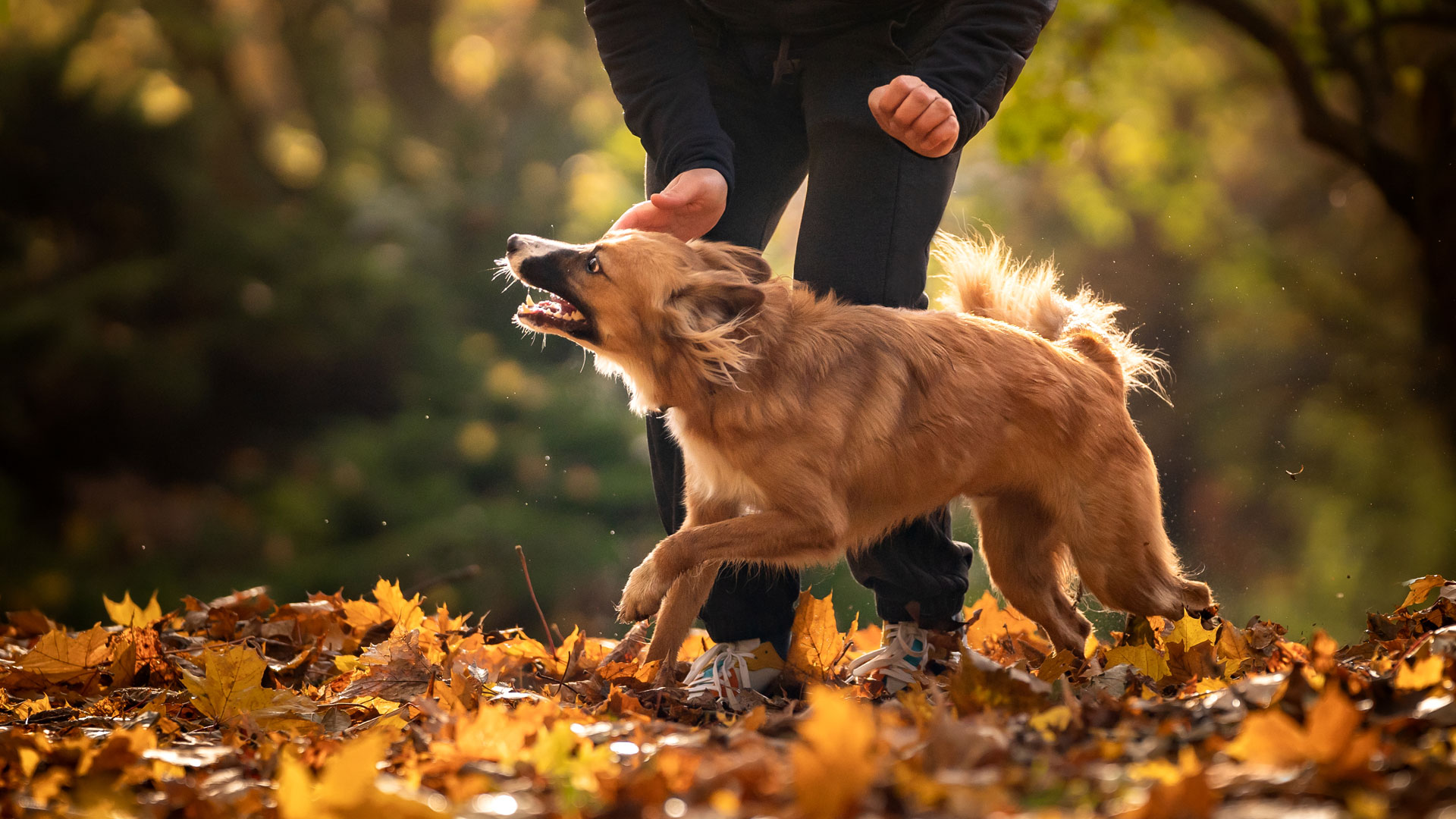
Get the best advice, tips and top tech for your beloved Pets
You are now subscribed
Your newsletter sign-up was successful
Love for our furry friends can make it feel like there’s a risk around every corner, but while there are plenty of fall dangers for dogs to be looking out for, you can rest assured that they aren’t too difficult to spot. Whether you’ve got a small dog or a Great Dane, fall is a time of year that dogs particularly love, with piles of crunchy leaves everywhere to leap into, temperate weather, and plenty of things to sniff.
If you’re looking for a way to distract your dog while on a walk, our list of best dog treats can be a great way to get their attention back on you. Or, if you’re having a training session, squeezy cheese might help you keep a reactive dog focused, according to one trainer.
So, what should you be looking out for on your fall dog walks?
1. Acorns
Acorns are toxic to both humans and dogs without sufficient processing. The Kennel Club explain that the tannins in acorns can cause digestive problems for your furry friend, leading to sickness, diarrhea, and sometimes blood in their poop. They warn that if your dog consumes a lot, they are at risk of kidney and liver damage. Acorns are also small and a choking hazard, so keep an eye on your pooch around oak trees (or any tree that drops fruit and nuts) and contact your vet immediately if you think your dog is in distress.
2. Fallen leaves
If your dog is greedy or prone to sneaking things they shouldn’t, be careful around piles of fallen leaves - you don’t know what could be lurking within them. Hibernating animals, such as snakes, might bed down in fallen leaves and a bite from some snakes could be fatal to your dog, says the American Society for the Prevention of Cruelty to Animals (ASPCA). Make sure to check your yard before letting your dog out, or keep fallen leaves out of the way of your dog.
3. Slugs and snails
Slugs and snails carry lungworm, a parasite that can be fatal to dogs, according to The Kennel Club. While a dog with lungworm can’t infect another dog, if your dog eats an infected slug or snail, the worms can then transfer to the dog and the dog will pass the larvae in their waste which infects the slugs and snails again.
Lungworms live in the heart and lungs, causing symptoms like weight loss, coughing (sometimes bringing up blood), and lethargy. Slugs and snails thrive in the damp fall weather and are more likely to be traveling around, as the moist air and wet ground after rain allow them to move more easily.
Get the best advice, tips and top tech for your beloved Pets
4. Pine cones
Pine cones are not toxic to dogs, but can cause digestive problems if chewed or swallowed. Larger chunks of pine cone are at risk of causing an intestinal blockage and smaller pieces might choke your dog or damage the insides of their mouths. The ASPCA’s Animal Poison Control encourages caution around pine cones, even the decorative kind.
5. Mushrooms
The ASPCA warns us to be particularly careful of mushrooms around fall, as they are in season. Not only can they cause severe digestive problems, but the psychedelic nature of some mushrooms might trigger neurological problems in your dog, and some mushrooms could cause liver damage or even death.
6. Rodenticides
With the drop in temperature accompanying the start of fall, rodents like rats and mice make their way indoors. As a result, people put out rodenticides, which can kill your dog if eaten, warns the ASPCA. These poisons are designed to be appealing to rodents, which also makes them appealing to dogs. They may look and smell tasty to your pooch but can cause liver failure, brain damage, internal bleeding, and even death depending on the chemicals used. Keep an eye on your pet on walks and if you put out a rodenticide in your own home keep it well out of reach of your dog.
Looking for more? Find out; do dogs need coats in the winter?
Lou is an experienced writer and keen dog lover who works at PetRadar's sister site, LiveScience. When Lou isn't covering health and fitness, she's busy spending time with her family dogs or growing all kinds of veggies and flowers on her allotment.
